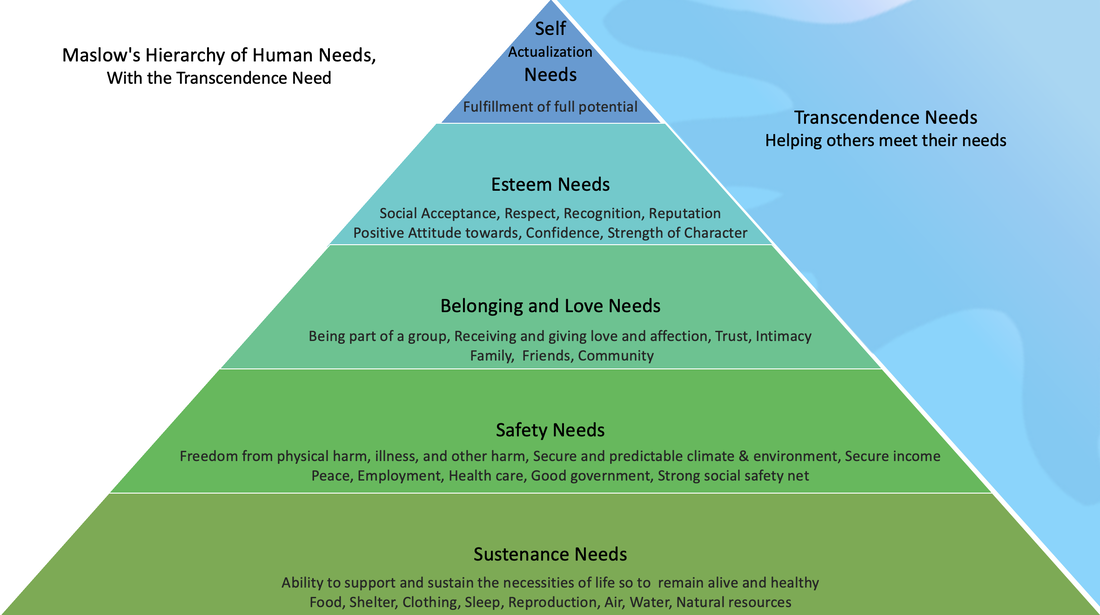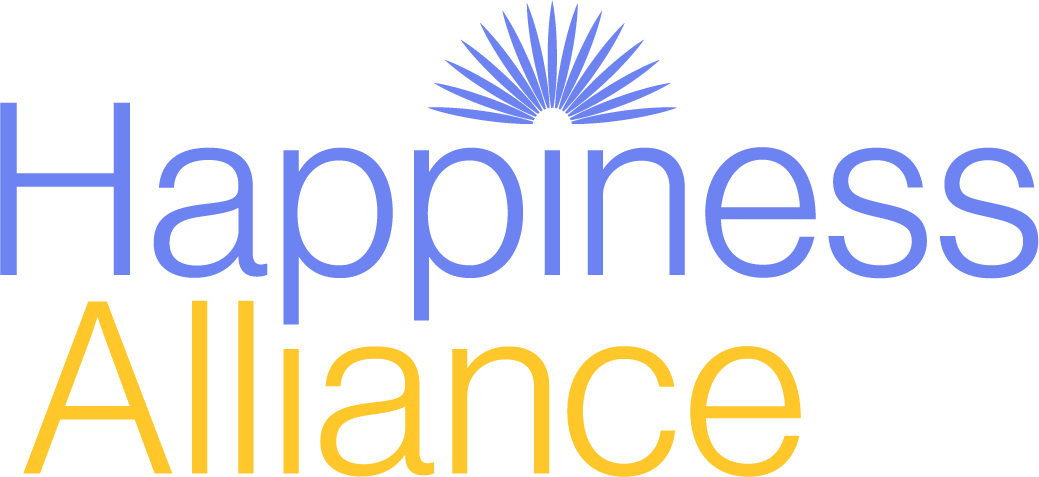|
Guest Blog by Megan Isola In our fast-paced world with relentless demands, many individuals find themselves merely surviving, grappling with the challenges of everyday life without truly experiencing the joy of thriving. However, life is meant to be more than just a struggle for survival; it is an opportunity to embrace a vibrant lifestyle that empowers us to flourish physically, mentally, and emotionally. The journey from surviving to thriving involves a deliberate shift in mindset and a conscious effort to prioritize self-care, personal growth, and meaningful connections. By embracing the principles of a vibrant lifestyle, we can unlock our full potential and discover a life filled with purpose, fulfillment, and boundless possibilities. Get into self-carePeople often assume self-care means facemasks and massages; however, self-care goes beyond expensive treatments. Self-care means moving your body, getting good sleep, drinking plenty of water, and getting sufficient nutrition. It also means tapping into your emotional state and ensuring your mind gets exercise too. For those with spirituality, another aspect of self-care might be praying, meditating, or spending time in nature. While your self-care activities can certainly include a rigorous skin-care routine and a monthly massage, ensure you go beyond aesthetics and tap into your inner self. Embrace a growth mindsetSeeking opportunities to grow within yourself is a sure way to lead a thriving life. Rather than avoiding the many challenges life brings, embrace them head-on. Learn to embrace discomfort and practice facing it head-on. If there are things in your life that you want to change, you need to face them head-on. There are many tools and resources you can use online, such as the Happiness Alliance, that can help contribute to improving your wellbeing. Whether it's traits about yourself you want to improve with the guidance of a therapist or addressing intimacy issues with a doctor, embracing a growth mindset and seeking the appropriate help allows you to become the best version of yourself. Invest in your passions and interestsInvesting time in things you enjoy is an important part of building a happy life. Consider what hobbies and projects you might be interested in. Whether you enjoy writing, building things, woodworking, or reading, or if you don’t know what your passions are yet, don’t be afraid to try new things until you find something you really love. After identifying a hobby or project, create goals and actionable steps to pursue it. Then, ensure you carve out time to work on your hobbies, even when you have a packed schedule. Making hobbies a regular part of your routine is an essential component of leading a vibrant and happy life. Build healthy habitsHabits are easy to make but hard to break, especially unhealthy ones. Recognize some bad habits of yours that contribute to negativity or are holding you back from thriving in life. Then consider what you want to replace those habits with. For example, if you eat an unhealthy diet, switching to a nutritious one can drastically improve your health and happiness. Whether you’re a “quit cold turkey” type of person or want to take these changes in increments, outline how you’ll switch these bad habits for better ones. Remember, consistency is key to building healthy habits, so ensure you repeat these positive behaviors regularly to make them a normal part of your routine. Foster Meaningful Relationshipsnvesting in social self-care is another part of building a healthy and happy life. Invest time and effort to nurture your relationships with loved ones by spending time together and maintaining open and healthy communication. Seek relationships with people who support and uplift you, and avoid or drop toxic or draining relationships. A major part of building meaningful relationships is being a good friend. Cultivate empathy, active listening, and kindness in your relationships with others so you can be the reliable person others need and that you want in your relationships. Romantic relationships also need nurturing and thrive on healthy communication. In an ideal world, relationships are 50/50; however, in practice, this isn’t always possible. At times, one partner may experience issues that can make your relationship complicated, such as depression or sexual disorders like erectile dysfunction or loss of libido. Discussing these issues prevents insecurities in your relationship and offers a greater support system to help you get through these difficult times. For medical issues such as erectile dysfunction, you must foster open and honest communication with your partner and speak to your doctor to help you address these issues either through the support of therapy or a medication like Viagra. Your life partner is a major part of your life, so nurture the relationship to foster a vibrant life for both you and your partner. Practice MindfulnessMindfulness has been quite the buzzword as of late and for good reason. There are a few ways to approach mindfulness, but typically it involves a meditation practice of being aware of how you feel in the moment that extends to other areas of your life. To harness mindfulness, develop a regular meditation practice to help you calm your mind and improve your focus and awareness. After you’ve tapped into just living in the moment, extend this ideology to other areas of your life. Bring mindfulness to your regular activities, such as eating, going out on walks, and even while you work, and practice being fully present in each moment. Additionally, use mindfulness to help reduce stress and anxiety and improve your overall well-being. Adopt balance in lifeBalance is another factor in a vibrant life. To find balance in your life, set boundaries and learn to say no to avoid overcommitting yourself and becoming stressed. This should also extend to harnessing a healthy work-life balance. You should also schedule downtime to do activities you enjoy, whether it be going to the gym or investing in your hobbies. Scheduling time to enjoy downtime helps you recharge and avoid burnout. Lastly, practice time management to make the most of the time you have and avoid stress. Seek Learning and Personal GrowthA fulfilling life is one with lots of learning and personal growth. Remember to engage in lifelong learning, whether that be pursuing your education, taking online classes, or just engaging in new experiences and embracing new opportunities. Additionally, learn how to embrace the challenges life throws at you and push yourself beyond your comfort zone from time to time, as these are opportunities to facilitate your personal growth. Self-reflection is another important part of learning and growing, so regularly check in with yourself and assess your strengths while identifying areas for improvement. And always be open to personal development opportunities. Living beyond a survival mindsetTransitioning from a state of mere survival to one of thriving is a transformative endeavor that requires dedication, self-awareness, and a commitment to positive change. By prioritizing self-care, embracing a growth mindset, and pursuing your passions, you can open the door to a vibrant and fulfilling existence. Additionally, Cultivating meaningful relationships, practicing mindfulness, and embracing balance in your life further contribute to your overall well-being and happiness. As you embrace a vibrant lifestyle, you’ll embark on a journey of self-discovery and empowerment. Embrace this journey wholeheartedly, knowing that each step brings you closer to a life of thriving, joy, and purpose.
By taking the Happiness Index and adding your data, you contribute to an understanding of happiness that helps guide our society, economy and our lives for present and future sustainable happiness.
0 Comments
Part one of two by guest writer, artist Melanie Reed, author of Whole Hearted Half Truths and Every Other Day.Art permeates our culture like a stubborn misunderstood child. Most people think about and talk about it only briefly in terms of whether or not it was either entertaining or deeply affecting. They get art recommendations from various sources, experience the art form for themselves, and finally "evaluate" it simply based on whether or not it made a positive impression for them on that occasion. While art can certainly be both entertaining and affecting, it can also be so much more. But few people are lucky enough to fully understand this. This happens for two reasons: 1) art language is more complex and nuanced than daily spoken and written language, given that it can be variously coded, intellectual, emotional, didactic, representational, evocative, open-ended, random or intentional and 2) unlike examining the efficacy of a daily spoken and written language, there are few proscribed social/cultural structures in place for examining art language. Together, these two factors create a limited art perception "divide" between art that is either simply entertaining and/or affecting and art that is simply inexplicable and therefore pointless, which then keeps the average art appreciator stuck in a set of limited subjective tastes that may never evolve, and reserves deeper and more objective arts analyses solely for other artists who are working in comparable fields. All this can be overcome if the average person is willing to do just enough thinking and reading to give them a reasonably adequate platform for evaluation. Here's one possible approach for examining just one piece of artwork or art experience: 1) Note the form [visual art, dance, theater, literature, music, film], keeping in mind the specific elements that that particular form is best at expressing. (some arts use dual or hybrid forms) 2) Identify the genre or style, keeping in mind the specific elements that that particular genre or style is best at expressing. (some arts use dual or hybrid genres). 3) Attempt to ascertain the artist's intent, ideally by researching the artist. 4) Determine how consistent the artwork is. Does the whole thing hold together as an entity, or are there missing parts, contradictory parts, or confusing parts? (Note: Confusion, contradiction and absence can sometimes be deliberate, so try to ascertain whether or not such things are part of the intent.) 5) Determine to what extent the artist succeeded in carrying out his intent. (Note: Even random art language has an intent.) 6) Determine how original the artwork is. Is the artist saying something new, or approaching an old thing in a new way? This may entail looking at similar works by comparable artists. During this process, there's no need to dismiss a subjective emotional response, but for a deeper awareness of the artwork: 1) put such a response to one side as you're evaluating the work, and 2) ask yourself what subjective elements in your own life might cause you to have this response. "How To Talk about Art and Why We Should Talk About It" is part of our exploration of Beauty in the Happiness Report Card 2024. Visit Melanie Reed's website to explore more now
When you are loving to yourself, you care for the earth.
One way of taking care of yourself is by listening to your inner voice. A person may be completely unaware that they have an inner voice, and even deny that they have one, but everyone has an inner voice. Your inner voice is the dialogue you have with yourself about yourself. Your inner voice may congratulate or condemn you. It may tell you that you are beautiful or that you are unattractive. It may cheer you on, or discourage you. Upon reflection of something you’ve done, your inner voice may tell you it was a job well done, or that it was not good enough. One of the ways you can tell if your inner voice is helpful is by what it tells you about your body. Reflect for a moment, right now, on what you think about your body; about your appearance, weight and shape. A positive inner voice tells you that you are beautiful and your body shape is just as it should be. It tells you that you are worthy of care and respect for the simple reason that you exist. A positive inner voice allows you to rest comfortably in the beauty of your body rather than compare yourself to others or to some ideal. A negative inner voice tells you that some part of your body is flawed. It tells you that you are too fat or too thin, too short or too tall. It may tell you that you are unattractive without makeup or working out, or that you are too old or not athletic enough. The media and cultural mores reinforce your negative body image, making it hard not to believe your negative inner voice. It would be nice if changing your inner voice were as easy as making up your mind to do so, but for most people, this is not so. Like most people, your inner voice arises without your active choice and often without awareness of its arising. If you find that your inner voice has unkind things to say to you about your body. There are three steps you can take to become kinder towards yourself, which will extend into kindness towards others and the planet. The first step is called noting. Noting is the simple act of noticing when your inner voice has spoken. Each time you note, you are developing your awareness of your inner voice. You can do this by noting whenever you hear the things your inner voice says, with a sentence such as, Oh, there’s my inner voice saying such and such. Noting does not entail judging yourself for what your inner voice says. If you find yourself condemning yourself for the things the inner voice says, then note that too. Noting also does not entail trying to change your inner voice. If you find yourself changing how you talk to yourself, such as by saying nice things about yourself, note that too. Noting is simply what it is. The second step is talking to someone about your inner voice. For this step, it is important to talk with someone who does not judge you. It is also important that the person you talk to cares about you, is interested in what you are observing about your inner voice, and in what you are thinking and feeling about this. This person may be a friend or therapist, a sponsor or a group, or another person in your life. If your inner voice tells you you should harm yourself or others, then it may be a sign of clinical depression or other mental illness. If you think this may be the case for you, talk to your doctor. The third step is to develop a habit of saying the most loving and supportive things you can think of to yourself. Do this every day, several times a day. It helps to tie this habit to others. Say nice things to yourself when you brush and floss your teeth, eat, drink something, and go to the bathroom. Say nice things when you get up in the morning and when you go to sleep.Use statements that touch your heart. These are statements for you alone. You may use a childhood nickname or a pet name you wish you had, followed by sweet and loving words. To find the right statements for you, you may recall the loving things a parent said to you or loving things you wish they had said. If you find it easy to say encouraging things to others, saying the same thing to yourself may be the right statement for you. At first, these statements may feel strange. You may not believe them. You may feel shame. If so, note these thoughts and feelings, and continue to say these loving statements to yourself. As you increase your awareness of your inner voice, as you talk about your inner voice, and as you habitually say positive things to yourself throughout your day, you will gently and slowly change how your inner voice talks to you. By taking these steps on a daily basis - as best you can - you will eventually find your inner voice saying positive things on its own. When this occurs, praise yourself. Sometimes you may find negative things creeping back into your inner voice, particularly when things are hard in life. When this happens, talk with someone about what is happening in your life and what your inner voice is saying. As your inner voice becomes kinder, you will find that you take better care of yourself, have more compassion for others, and have greater capacity for caring for the planet. For example, if today you think that people are the problem and the planet would be better off without humans, you may find a shift in your thinking. You may come to see that you, like every other being, are a part of nature and have a place on this planet. You may come to see that preserving nature and protecting the environment is an extension of the love and care you give yourself. Botox is localized botulism that is often used in the forehead to paralyze your muscles so you lose its wrinkles. You may look great with a little Botox but it could be costing you your happiness.
One of the effects of Botox is a loss of empathy and compassion. Empathy is the ability to understand how someone is feeling. Compassion is the ability to see when someone is suffering and do something to help them. Our capacity for empathy is connected to our capacity to mirror emotions. If eyes are the mirror to the soul, eyebrows and the crinkles and wrinkles around the eyes are the mirrors to emotions. Eyebrows and those little crinkles and wrinkles around the eyes are a hot spot for micro expressions. Without conscious knowledge, you are able to pick up if a person is happy, sad, stressed, or frightened by the tiny signals they send when their eyebrows spread slightly apart, or dip down toward each other, scrunch together and lift up or spread to either side. You are able to pick up another person's feeling not because you think; oh their eyebrows are scrunched this way or that but because your face naturally mirrors theirs, which conveys to your mind and heart what they are feeling. Botox prevents you from mirroring another person's expressions, which can cause you to lose clues about how those around you are feeling. It also prevents you from true expressions of your feelings. The reason it is so important to have empathy has to do with relationships. The most important thing to happiness is relationships. The famous Harvard study that followed people across a lifetime tell us that a good relationship is key to a happy life. And what is friendship for - whether with your life partner or anyone else? Most often people will say to have someone who understands you and will be there in the tough times. In other worlds, to have someone who has empathy and compassion to turn to in bad times and good. Botox robs a person of the ability to discern the small moments or things just under the skin, and so steals away a myriad of little opportunities to connect and show care and love to another. So if you feel drawn to Botox or any of its kind to smooth out those wrinkles in your face, consider this: maybe those wrinkles are a good thing. Maybe they are there to say I care and I value how you are feeling, and my own feelings. Universal basic income (UBI) , also called guaranteed basic income, is the concept that every working person should be provided with enough income to meet basic needs. Thus far, when UBI is put in practice, only those who earn very little or no income benefit.
Regional and local governments around the world, such as Manitoba and Ontario in Canada, Utrecht in the Netherlands, Nairobi in Kenya and several villages in India have experimented with it. The United States used a negative income tax (paying people who made little or no money when they filed their taxes) for some years. The State of Alaska and Spain both have forms of guaranteed basic income. Some national governments, such as Finland and Germany are also experimenting with the concept. The COVID-19 pandemic, with the shutdown's impact on loss of income supplemented by many governments may yield opportunities to help answer some questions about guaranteed basic income, such as: what do people do when they cannot do their jobs and have a guaranteed income? Do they stop working or do they find other ways to work? If they find other ways to work, do they find paid work or do they do unpaid work? You can ask yourself these questions if you received benefits during the pandemic. AI’s job replacement rate is between 3-6 jobs.* Some researchers predict that worldwide, a massive percent of the workforce could lose their jobs in the next ten to twenty years. These predictions often give rise to a discussion about universal basic income. *Acemoglu, D., & Restrepo, P. (2019). Robots and Jobs: Evidence from US Labor Markets. Journal of Political Economy, doi:10.1086/705716 **Susskind, D. (2020). A world without work: Technology, automation, and how we should respond. New York, NY: Henry Holt and Company; Amblee, R. (2019). Who pays who?How abundance created by Artificial Intelligence would pay for universal basic income. Gloture Books How abundance created by Artificial Intelligence would pay for universal basic income. Gloture Books Expectations are part of our nature. They empower you to shape your future. When you expect good things from yourself, act on those expectations and achieve them, then you have reason to feel a sense of accomplishment.
A person with unrealistic expectations for themselves can end up never feeling satisfied with any achievement, no matter how magnificent. Instead, they always feel a sense of not being enough. This may be in relation to feeling responsible for things they have no control over, such as saving the planet, reversing global warming or changing the political tides of a nation, or it may be in relation to a personal sense of unworthiness, so that no matter what they achieve, it is never enough because they feel as if they are not enough. These kinds of expectations are often established at an early age in a person's life, and it takes thoughtful reflection to understand how to set more realistic expectations for oneself. Another source of unrealistic expectations can come from life’s stages. As your life circumstances change and as you age, your capacities change. One of the skills a person who successfully ages or adapts with resiliency to changes in life's circumstances is the ability to change their expectations. Aging is one of the most obvious reasons for changing expectations. Changes in the physical body necessitate a change in expectations.. A thirty-year-old marathon runner cannot expect their seventy or eighty-year-old body to run 42.2 kilometers. However, changing their expectations may give them a similar sense of accomplishment from walking a few miles a day. Changing expectations for productivity may mean letting go of an aspiration of a career milestone and, instead, focusing on sharing knowledge through mentorship, writing and other ways of creating a legacy. As a person ages, they can change their expectations of their mental acuity by focusing on learning new things instead of worrying about memory loss (however, one should always consult a doctor when losing memory, as it may be treatable). This manner of changing expectations is not settling for less. It involves understanding and appreciating what you can do, and finding pleasure in your accomplishments based on that realistic awareness. Loss also calls for change in expectations. A natural inclination when faced with loss is to try to replace what it is you have lost. For example, a person who loses a job will have a natural inclination to seek the same or a higher position, and a person who loses a partner may seek someone who is just like their last beloved. Understanding this inclination can help you view loss in a different way. A loss of a job, a relationship, or an investment can be a time to reflect on the choices in your life, and your life's path, and see if a change in your career, orientation or preoccupations would bring you more happiness. Two generations ago, one could expect to be employed for their entire life. At least two of your grandparents probably started the first day of the job when they were less than twenty five years old and retired at sixty five or older. That would be unusual today. Few people can expect to have the same employer in five or ten years. Most people can expect to be “let go” at some point, laid off, or lose a job because of an economic downturn or advances in artificial intelligence (AI).
In the last century, technology has already eradicated many jobs: daguerreotypists, telephone switchboard operators and telegraph operators, knocker-ups (they taped on your window before alarm clocks were invented) and movie projectionists are a few. Technology has transformed every job, sometimes with great resistance. The term luddite comes from the English mill workers, who threw their shoes into the cotton gins (sometimes credited with bringing on the industrial revolution) because the new technology was replacing their jobs. Today it's not just factory workers who are seeing technology, in the form of AI, replacing or changing their jobs. It is now less common to buy a railway or airline ticket from a person than from a kiosk or online platform, pay a toll to a toll booth operator than a machine, and get customer service from a live person rather than a bot. A few generations from now, people will probably have to look up what toll booth operator means the same way we do for daguerreotypists today. AI is replacing manufacturing jobs in every industry: the auto, electronic, chemical, pharmaceutical and metals industries, retail and business to business, restaurant and transportation industries, as well as highly skilled jobs in the business, science, medicine, law* and psychology**. Eventually, AI will likely be a large part of every job, just as digital technology is today, or, as feared by some, In the current economic paradigm, AI may altogether replace humans in the workforce.*** Unemployment causes unhappiness and can leave a person with feelings of anxiety, dejection and depression for many years, even after they find a new employment.**** If AI causes unemployment on a massive scale, humans who rely upon jobs for support will need a new economic paradigm.. One way to prepare for unemployment in your own life is to change your perspective of what work is. *Acemoglu, D., & Restrepo, P. (2019). Robots and Jobs: Evidence from US Labor Markets. Journal of Political Economy, doi:10.1086/705716; Lo, Y., Woo, C. & Ng, K. (2019). The necessary roadblock for artificial general intelligence: corrigibility. Easy Chair Print, 846. Retrieved from https://wwww.easychair.org/publications/preprint_download/gRlw ** Gratzer D, Goldbloom D. Open for Business: Chatbots, E-therapies, and the Future of Psychiatry. The Canadian Journal of Psychiatry. 2019;64(7):453-455. doi:10.1177/0706743719850057 ***Harari, Y. (2016). Homo Deus. Harvill Secker. **** Clark, A., Flèche, S., Layard, R., Powdthavee, N. & Ward, G. (2018). Origins of Happiness. Princeton, NJ: Princeton University Press. Money is important but it is not the ultimate aim of life. It is what you do with money that matters. You exchange money for food, shelter, and everything else you need to feel safe and comfortable. You save or invest extra money you earn with the expectation you will use it to buy what you need to be safe and comfortable in the future. Most people use money to meet most of their needs. We call it earning a living, or supporting oneself.
Imagine a world where AI did the work you are doing now. It is the same for your neighbors and the people you encounter in your daily life: grocery clerks, the sanitation workers, doctors, teachers and professors, and even artists and authors. Where will you be? In that world, it may be true that “the most important decision you can make for your happiness is which parents you choose” as stated by Nobel Laureate Joseph Stiglitz said at the 5th OECD World Forum on Statistics, Knowledge and Policy in 2015. Only the few who control AI may have jobs and they may be the only ones who can feed, clothe and shelter their families. You may be homeless, living hand to mouth, hungry, anxious, and, in all likelihood, eventually addicted. Unable to meet your basic needs, you and others like you might fall into a lawless armageddon, filling prisons and fulfilling doomsday prophecies about AI and humanity. Or you may be part of a sustainable community that generates its own food, clothing, shelter and energy. You may find ways to put your talents to work that foster security and a sustainable capacity to meet needs for you and others. You may be fulfilling dreams of utopian societies and a simpler life. On the other hand, universal basic income may become as ubiquitous as taxes are today. You may have enough money to meet your needs, but no purpose or meaning in life. Instead of being homeless you become hopeless and descend into depression. Or you could take another route, and free income may liberate you to explore and develop parts of yourself so that you fully live your purpose. You may find yourself inspired and driven to create and produce goods or services that help other people, or to take a much more active role than you ever considered in building and maintaining a strong community around you. In preparation for the almost nearly inevitable changes you will face in your employment status, you can define what support means to you. Support is composed of many things - from food to love, home to hope. Another way to think about support is all the things you need to be happy. - Written by L. Musikanski The Happiness Movement has always been about systemic change, and at its core, has always focused on where people are hurting the most. In this tragic (and not unfamiliar) time, we grieve, both as a nation and individually, the loss of the lives of some of our future generation, and the loss of a sense of safety for all of our children. Today the leading cause of death among our children (ages 5-19) is gun violence. There are some more guns than people in America at present and about 50,000 guns are sold daily. Thus, we present our Call to Action, and ask you to do the same. You are welcome to download ours and adapt it for your own Call to Action In California and other areas, laws are under consideration or enacted to ban oil-powered cars. Is this the answer to sustainable development? It is true that such laws will increase production of electric another alternative powered vehicles, and the alternative fueled car industry may be a good investment - that is if our environment will survive.
There are many problem with electric car legislation, from social inequity to the wars and human rights violations each time lithium is in demand, not the least of which is how do we expect to meet the demands of electricity? (Spoiler alert here - nuclear power is already powering many of us). But the main problem is that this kind of legislation takes us further away from systems that allow for sustainable living and sustainable development. So, why don’t we do the smart thing? Let's invest in public transportation. Let’s just ban cars all together, and create clean public transportation systems that support rather than deplete the environment. And let's put an end to living out of harmony with each other and nature, and take a note from the world’s happiest countries, where village living allows people to work, play and live pretty close to sustainably. There are other solutions. These solutions are not brain science. They are what our great grandmothers knew, they are in all of our past, and they are right there for us to discover. Can you make a difference? Remember - language is the DNA of culture. Talking, thinking, sharing ideas about how to live sustainably makes a difference. Authored by L. Musikanski |
We CarePosts written by the People of the Happiness Alliance & our Friends. Archives
March 2024
Categories |
Sign up for the Happiness Alliance Newsletter
THE HAPPINESS ALLIANCE IS A 501(c)3 NONPROFIT REGISTERED IN THE UNITED STATES
The Happiness Index is Copyright © 2014 by the Happiness Alliance











 RSS Feed
RSS Feed
